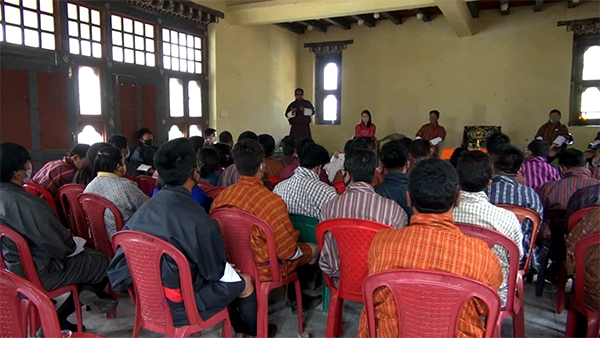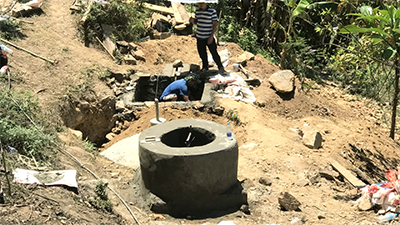 Biogas construction is gaining momentum in the country. But the lack of masonry skills to construct biogas, difficulty in getting the appliances and farmers’ limited knowledge of its benefits are some major challenges. Thus, the Bhutan Biogas Project conducted a half month-long training for 46 participants from seven districts recently on biogas installation in Langthil Gewog, Trongsa.
Biogas construction is gaining momentum in the country. But the lack of masonry skills to construct biogas, difficulty in getting the appliances and farmers’ limited knowledge of its benefits are some major challenges. Thus, the Bhutan Biogas Project conducted a half month-long training for 46 participants from seven districts recently on biogas installation in Langthil Gewog, Trongsa.
 The participants included farmers, masons and livestock extension officials. According to the Bhutan Biogas Project, rural pockets of the country have the potential to replace imported gas cylinders with biogas. About 8,000 biogas plants have been installed across the country since its inception a decade ago.
The participants included farmers, masons and livestock extension officials. According to the Bhutan Biogas Project, rural pockets of the country have the potential to replace imported gas cylinders with biogas. About 8,000 biogas plants have been installed across the country since its inception a decade ago.
“For now the small biogas is installed at the cost of Nu 40,000 and the larger one is fixed at Nu 50,000. And the government is providing 50 per cent cost subsidy under the cost-sharing mechanism,” said Sonam Phuntsho, quality control and monitoring officer of Livestock Biogas Program.
The Bhutan Biogas Project has constructed more than 2,000 biogas plants from the targeted four thousand in the 12th Five-Year Plan. To achieve the rest of the target numbers, participants from Haa, Dagana, Wangdue Phodrang, Monggar, Trashigang, Chhukha and Trongsa will return to their respective districts and help, manage and monitor farmers to install biogas plant hereafter.
“Firstly there will be no outflow of our currency in case if we make use of biogas. And secondly, we could achieve the goal of community self-sufficiency,” said Sangay Wangmo, senior livestock extension officer.
“Farmers have no income to buy gas cylinders. Moreover, to buy one cylinder, we have to wait for months now. So biogas has immense benefits for us,” added Nala Phub, a participant.
“We would be able to achieve the national goal of maintaining 60 per cent forest cover at all times to come as we need not cut down trees for firewood if we install biogas,” said Tshering Wangdi, another participant.
A record maintained with the project states that in a year, a household with biogas can save 2,000 kilograms of firewood, 2,555 litres of kerosene, and 1,460 kilowatts of electricity. Besides, it has a benefit to human health and the environment since Bio Gas turns methane gas (livestock manure) into a fuel that will also take carbon out of the air at the same time.
Passang, Trongsa









